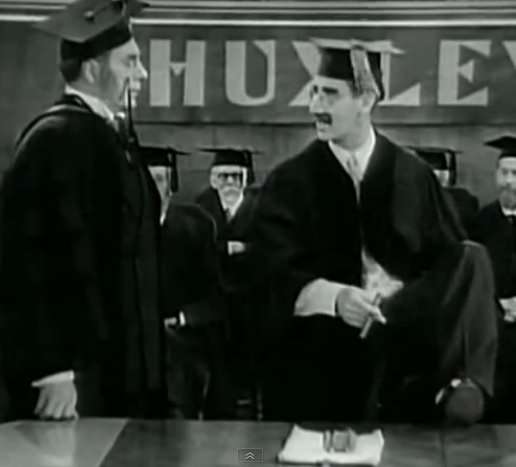Will a Mockable Week in Higher Education Help Deflate the College Bubble?

This week, Columbia Law School students demanded—and got—delayed exams to compensate for the trauma the fragile things experienced over the Eric Garner case. Also in response to the Garner case, Smith College President Kathleen McCartney had to apologize for insisting that "All Lives Matter" when the acceptable sentiment of the moment is that "black lives matter." And at the University of Iowa, David Ryfe, director of the School of Journalism and Mass Communication, insisted "I would follow the lead of every European nation and ban this type of speech" after an anti-racism art installation misfired and upset students who are defintely not spending years of their lives at an institution of higher learning to have their ideas challenged or their feelings bruised.
If this was all, it would still be enough reason for me to start contemplating just how much motorcycle my kid's 529 can buy. But of course there's more. College, after all, is where Rolling Stone went dumpster-diving in eager expectation of finding seamy tales of sexual assault, and instead unearthed the revelation that students dipping their toes into adulhood are unpredictable, perhaps unstable—and that its own journalistic practices suck.
And those students (and their families) pay a pretty penny to be treated as delicate flowers prone to tantrums while navigating a sexual minefield. As I noted a few months ago, "When I was a college freshman in 1983, average tuition, fees, room and board at private, nonprofit colleges added up to $18,143 in 2013 dollars. This year, that number has risen to $40,917. Public colleges are cheaper than their private counterparts, but they've seen similar soaring costs."
Government policies encouraging easy borrowing and subsidized repayment for college students put wings under these soaring costs.
"The basic problem is simple," wrote the Cato Institute's Neal McCluskey at U.S. News & World Report. " Give everyone $100 to pay for higher education and colleges will raise their prices by $100, negating the value of the aid."
The sheepskin at the end of that expensive ordeal (and gauntlet of inoffensiveness) is still worth the time and money for many graduates—a declining number. "Not all degrees are equally useful," noted The Economist in April. "And given how much they cost—a residential four-year degree can set you back as much as $60,000 a year—many students end up worse off than if they had started working at 18."
That expense now includes marinating in a culture of politically correct weirdness from which graduates must be deprogrammed by employers in the real world into which they inevitably emerge. At what point do those employers say, "screw it, hiring University of Iowa/Smith/Columbia Law graduates is more of a pain in the ass than it's worth?"
And at what point to students and families start looking for alternatives to what's turned into a spendy excursion through Bizarroland?
Instapundit Glenn Reynolds thinks the higher education bubble is already popping. He told Reason TV, "Given how expensive it is to go to college, there has to be a return sufficient to make it worth the time and especially the money. You're seeing declining enrollment in some schools and you're seeing much more price resistance on the part of both parents and students."
In fact, enrollment has declined for two years in a row.
Keep that decline coming—and driving demand for higher education alternatives with more competitive price tags and a closer connection to the real world. Cuz I'm looking at that 529, and I see a new motorcycle in my future.


Show Comments (64)